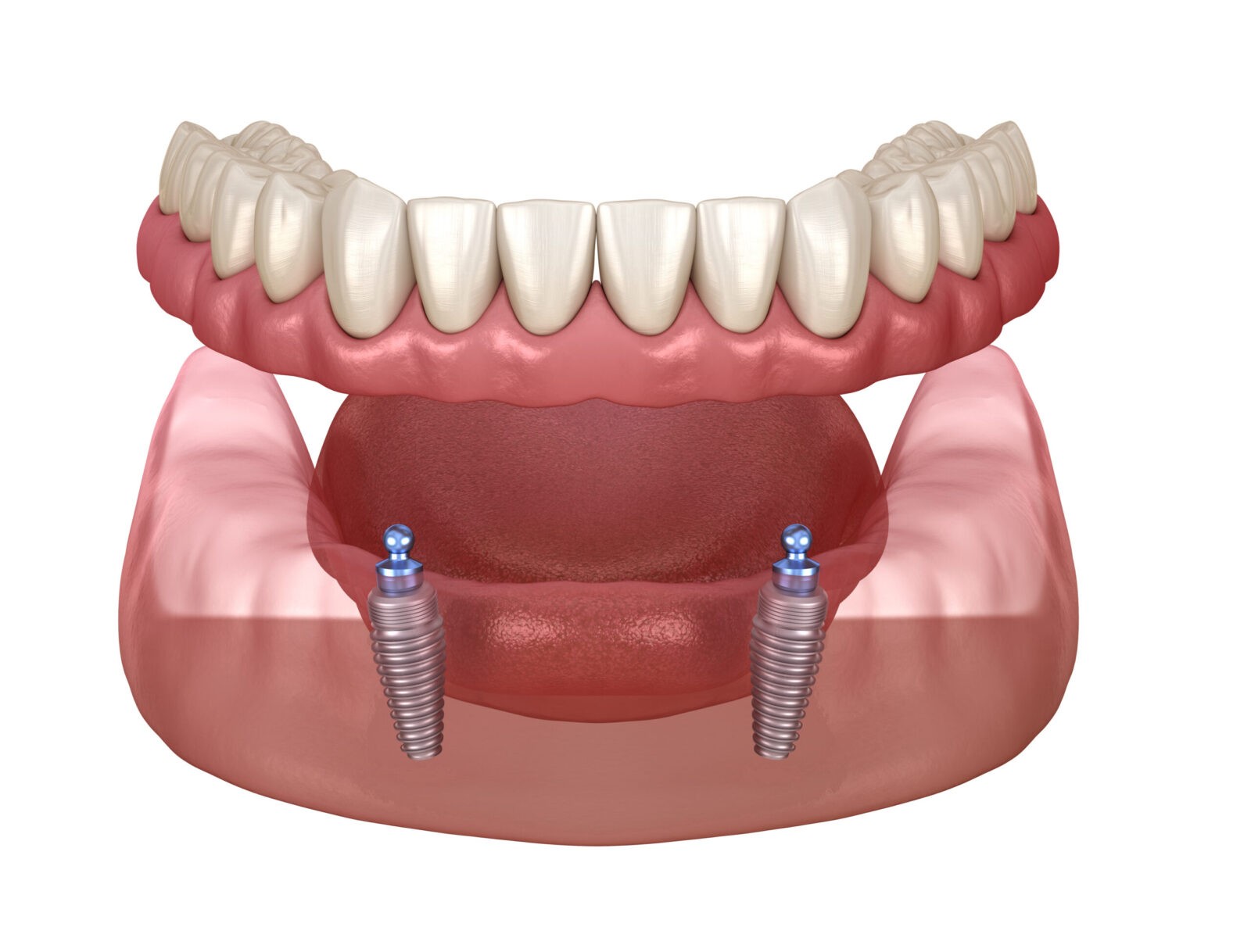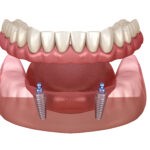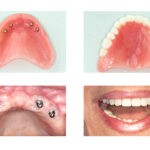I am very pleased with the care of the dentist and staff. My teeth look amazing and fit really well. I would tell everyone to go with them.
Mrs Gloria Thompson
Some patients struggle with loose dentures which can make eating and speaking difficult. Dental implants can be used to hold dentures firmly in place. Implant retained dentures click securely on to the implants but can easily be unclipped for cleaning.
Get in touchWith over 35 years of experience, we are experts in a wide range of advanced cosmetic dentistry at our practice and on-site lab.
The starting point is to have an implant consultation and bone scan. This allows us to plan your treatment and create an implant guide which we can then use to very accurately place the implants into your jaw bone. Using an implant guide makes the procedure much quicker, more accurate, and allows for faster healing times.
We then need to wait for around 12 weeks to allow your jaw bone to grow around the implants – this biological process is called the integration period and during this time you wear your denture over the top of your implants – so you’re never without teeth.
When the implants are fully integrated we can then connect your denture and you will begin to feel the benefit of the procedure. Your dentures will now be able to be firmly clicked into place and unclipped for cleaning.


Lower dentures can be a big problem and most denture wearers struggle with them. Over time the lower ridge (upon which the denture sits) shrinks away leaving nothing to hold the denture in place and this makes the denture loose. Lower dentures have a small surface area which means that denture fixatives are of little use. Dental implants provide an excellent solution to hold a lower denture firmly in place. Patients can have either two or four dental implants.

Some upper dentures can be loose for a variety of reasons. Sometimes patients have a shallow palate (a deeper palate provides better retention) or do not provide enough saliva (required to provide suction). Some patients have a ‘spongy’ palate, and any of these conditions can cause problems. Dental fixatives can often help with upper dentures, but sometimes implant retained dentures are the only real solution. We usually use six dental implants to retain an upper denture.
This type of implant retained denture is ideal for patients who want a smaller denture that doesn’t cover the palate.
To achieve the cohesion (or suction) required to hold it in place, a conventional upper denture needs to cover the whole of the roof of the mouth, and even a standard implant retained denture usually requires the palate to be covered for stability.
But some patients simply can’t tolerate this and for these patients an option is to have a horseshoe-shaped denture which only connects with the ridge, leaving the palate completely uncovered.
This option usually involves having six dental implants which are connected together with a milled titanium bar. Another bar is set into the denture and the two bars clip together very securely.
Reduce further bone loss
Tooth loss can lead to a shrinking of the jawbone. This change over time can lead to loose or ill-fitting dentures and reduce the chance of future implant work. The gum tissue grows around the implant which is placed into existing jawbone which can help to reduce further bone loss.
More secure than conventional dentures
Removable dentures are prone to movement in the mouth which can make the wearer self-conscious, especially when eating, talking or smiling. Implant retained dentures reduce the need for dental adhesives and offer peace of mind for denture wearers.
Natural appearance
Implant retained dentures create a natural-looking smile as they fit much better than traditional dentures. They offer comfort and stability and allow the wearer to smile with confidence.
Pricing varies depending on the number of implants required and the type of denture you have fitted. All prices are comprehensive and include Ivoclar dentures.
If you have a jaw of missing teeth, you don’t have to settle for ordinary dentures that are prone to coming loose. Your dentist will carry out a consultation to discuss the best treatment plan for you. They will assess your overall health and check you have sufficient bone density to be able to fit the implant.
No the procedure isn’t painful – the implants are positioned into the bone where there are no nerves.
Dental implants are a permanent solution to missing teeth and you can expect them to last around 15 years or more with good care. A denture is more prone to wear and tear and may need relining or adjusting to keep it fitting well.
Your smile makeover is just a click away. Contact us today at (0113) 279 6667 or use the contact page and our friendly team will be happy to help.
We are based on the outskirts of Leeds city centre and are easily accessible by car or public transport. You can find us at: Swallow House, 349 Tong Road, Leeds, West Yorkshire, LS12 4QG.
Book your consultation today.






